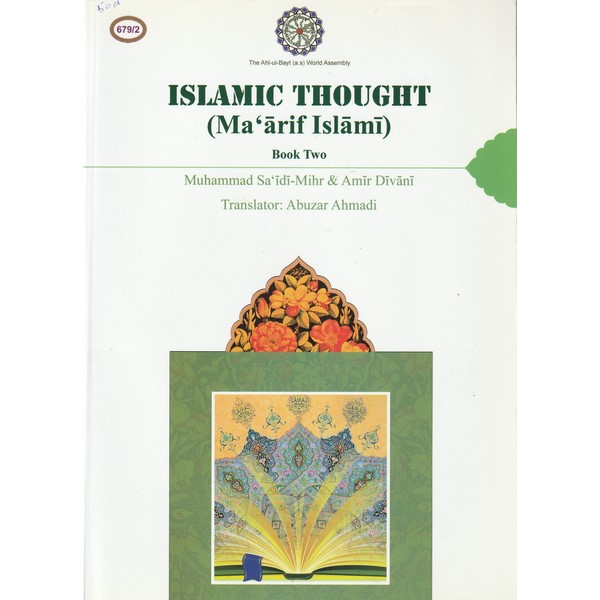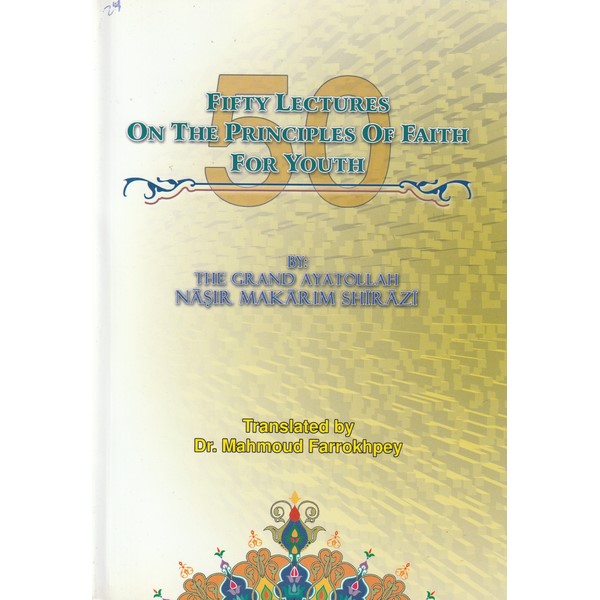| Content | Discovering Shi’i Islam is a brief introduction to main issues related to Islam in general and Shi’i Islam in particular. Though simply and clearly written, it is an outcome of more than twenty years of involvement in Islamic studies. The text studies the origins of Shi’i Islam and its sources, i.e. the Qur.an, the Sunnah, the reason and consensus. It also studies fundamental doctrines and main practices of Islam. It ends with a brief account of the latest statistics about the present Muslim population of the world along with a breakdown of religious affiliations of some countries with a long history of Shi’i presence therein. Discovering Shi’i Islam represents a sincere commitment to Islamic unity and is hoped to serve as a modest step towards Muslim brotherhood. Indeed, this book echoes the Qur’anic call for unity which extends to all people of faith to unify their efforts and concentrate on their common ground.
HEAVILY SUBSIDIZED BY WWW.ISLAMICTHOUGHT.CO.UK | The book, which requires brevity and concentration, is regarded as one of the best that deals with applied ethics. It is a guide for spiritual wayfarers on ethics and ways to strengthen one's faith, with the goal to reach Allah (swt). | This book by Ayatullah Baqir Al Hakim Book 2 of 7. Covering many aspects of life. Ayatulluh Baqir al Hakim is son of Grand Ayatullah Mohsin Al Hakim and also the the first leader after Saddam. He was killed in in Najaf Al Ashraf, joining rest of Shaheeds from his family of 72. Topics covered 1 Creed 2 Ethical aspect 3 Cultural aspect 4 Seeking knowledge 5 Variety in Education 6 Scietific- Hawzah 7 Grief and weeping 8 The tragedy of Karbala 9 Imam Mahdi (as) | This book contains word searches in following topics. 1Naflah 2 Qasr 3 Ghusl 4 Mayyit 5 Salaatjamaat 6 Sakaraat 6 Afterdeath 7 Ehkame 8 Hunoot 9 Kafan 10 Quboor 11 Barzakh 12 Grave 13 Squeezing 14 Ijara 15 Walidan
HEAVILY SUBSIDIZED BY WWW.ISLAMICTHOUGHT.CO.UK
| Principles of good governance in the letter of Ali to al-Ashtar refers to a set of instructions and advice for rulers, reputedly addressed at Malik al-Ashtar (d. 657), the Arab military commander and an ardent supporter of Ali ibn Abi Talib (d. 661), who was the fourth Rashidun caliph (r. 656–661), the first Shia imam, and the cousin and son-in-law of the Islamic prophet Muhammad. The letter is attributed to Ali and outlines his conception of just and righteous governance, following the appointment of al-Ashtar as the new governor of Egypt circa 657 CE. Among the earliest extant records about Islamic rule, the letter has received considerable attention throughout the Muslim history as a blueprint for Islamic governance. The theme of the letter can be summarized as justice and compassion for all, regardless of class, creed, and color. Malik was killed en route to Egypt to assume his new post at the instigation of Mu'awiya, the archenemy of Ali.
HEAVILY SUBSIDIZED BY WWW.ISLAMICTHOUGHT.CO.UK | This text contains fifty chapters, each containing an important lesson on the fundamental beliefs of our faith that are especially relevant for the youth of today. Ayatullah Makarim Shirazi presents these lessons using both philosophical reasoning as well as Qur'anic verses, and concludes each lesson with a few relevant questions which are intended to increase understanding of that particular lesson.
HEAVILY SUBSIDIZED BY WWW.ISLAMICTHOUGHT.CO.UK |












Reviews
There are no reviews yet.